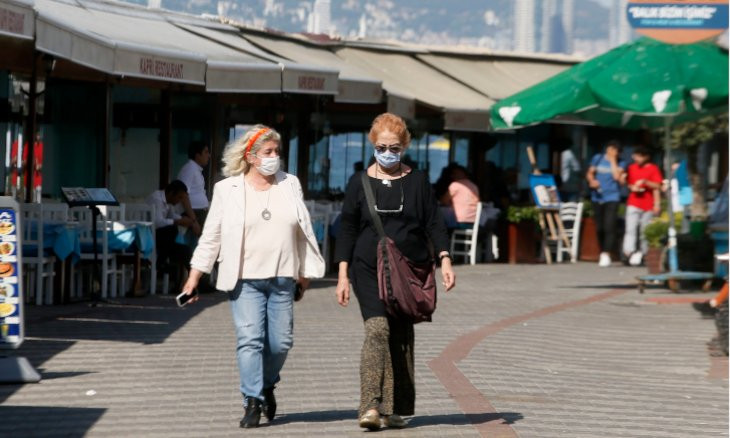Turkey suspends flights to Iran, Afghanistan amid coronavirus outbreak
Turkey has suspended flights to Iran and Afghanistan as part of the measures against the coronavirus (COVID-19) pandemic, the country's transport ministry said on July 19. Earlier, a spokesman for Iran's Civil Aviation Organization, Reza Jafarzadeh, said that the suspension of flights had begun on July 18.
Duvar English - Reuters
 Second wave of COVID-19 expected to hit Turkey in September or October, says Science Committee member
Second wave of COVID-19 expected to hit Turkey in September or October, says Science Committee memberTurkey has suspended flights to Iran and Afghanistan as part of the measures against the coronavirus (COVID-19) pandemic, the country's transport ministry said on July 19.
Earlier, a spokesman for Iran's Civil Aviation Organization, Reza Jafarzadeh, said that the suspension of flights had begun on July 18.
Iranian health officials sought on July 19 to play down the president’s estimate that some 25 million people have been infected with the coronavirus, saying it was based on serological blood tests that measure exposure to the illness and that cannot be relied on to show the current state of disease.
The 25 million figure put forward by Iranian President Hassan Rouhani on July 18 is nearly a third of the population and massively higher than the official number of COVID-19 cases.
Official case numbers rose to 273,788 on July 19, with 14,188 deaths, Health Ministry spokeswoman Sima Sadat Lari said.
 Turkey's daily COVID-19 cases below 1,000 for third day in a row
Turkey's daily COVID-19 cases below 1,000 for third day in a rowA Health Ministry statement carried by Iranian news media said the figure given by the president was based on numbers produced by a deputy in the ministry.
"It is not possible to rely on serological tests to diagnose the current state of the disease," the statement said.
Serological tests determine if a person has been exposed to a disease by showing their antibody response. In the coronavirus pandemic, they have been used by countries to survey samples of the population and estimate overall infection rates -- whether or not people have had severe, mild or no symptoms of COVID-19.
"Serological tests only show if people have been exposed to the virus in the past,” Mostafa Qanei, head of the government’s scientific committee of the coronavirus task force, was quoted as saying by the state IRINN website.
PCR tests of the throat and nose are needed to diagnose COVID-19, he added.
Iran has been hardest hit by the pandemic in the Middle East, with infections and deaths rising sharply since restrictions were eased, beginning in mid-April. Still, the number given by Rouhani took many Iranians by surprise.
Parliament deputy Alireza Salimi called on the government to come up with a single official figure for coronavirus cases.
In announcing the 25 million estimate on July 18, Rouhani did not say what the figure was based on, but added that 30-35 million more were possibly at risk.
A coronavirus task force official said July 18 the 25 million were “mildly affected patients who … did not need to seek medical advice."
